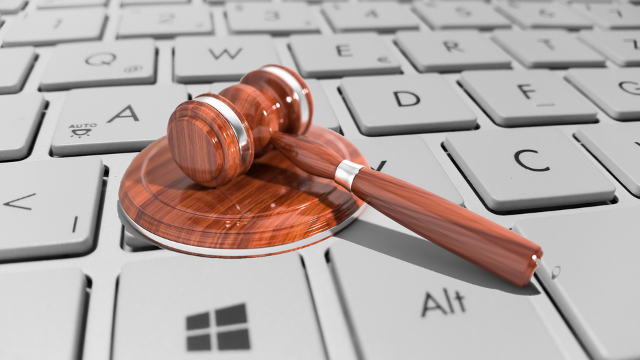
According to the Rhodes University Student Disciplinary Code, online harassment, bullying, and other forms of intimidation towards staff or fellow students are offences that can lead to severe consequences.
The nature of social media platforms tends to give people the perception that they are safe from prosecution. This is not the case.
Anyone found guilty of an intent to be hurtful, harmful, incite harm, promote or propagate hatred against another individual on social media platforms can face severe consequences. This may include exclusion/expulsion depending on the circumstances of the offence.
The following sections of the Student Disciplinary Code and Policy on Eradicating Unfair Discrimination and Harassment provide for the following:
Rule 4.17 in the Code states:
(a) A student may not engage in any conduct which is offensive to and/or defamatory of any staff member, student, or member of the public.
(b) A student may not be insubordinate towards any member of the University staff.
(c) A student may not engage in conduct which involves soiling, and outrages the public’s sense of decency and/or offends an employee’s sense of dignity.
(d) A student may not utter, distribute, display, show, screen or project disparaging, discriminating, and derogatory material based on a person’s race, cultural identity, gender or sexual orientation – this includes hate speech.
(e) A student may not engage in conduct likely to bring the University, or any part of it, into contempt or disrepute.
(f) A student may not engage in any form of harassment or discrimination.
Do you know what hate speech is?
Point (d) should also not give students a false sense of security. Students might feel safe because they are not attacking individuals based on race, cultural identity, gender or sexual orientation, but they often overlook or misunderstand the meaning of hate speech.
According to the Code, hate speech is defined as “any utterance – verbal, written, published, advocated or communicated in person – directed towards any person, that could reasonably be construed to be demonstrate a clear intention to:
(a) Be hurtful
(b) Be harmful or incite harm
(c) Promote or propagate hatred
The grounds of discrimination are as follows: race, gender, sex, pregnancy, marital status, ethnic or social origin, colour, sexual orientation, age, disability, religion, conscience, belief, culture, language and birth; or any other discrimination-based grounds which
(i) Causes or perpetuates systematic disadvantage
(ii) Undermines human dignity
(iii) Adversely affects equal enjoyment of a person’s rights and freedoms in a serious manner.”
What you can face if found guilty
According to the Code, the following could apply to guilty students, depending on the severity and context of the offence:
- Permanent exclusion from the University.
- Exclusion from the University, its premises, and from participation in all University activities (which shall include all student activities) for a specified period.
- Exclusion from a specific University residence or all residences.
- Exclusion from attendance at certain classes and/or University examinations, either permanently or for a specified period.
- Exclusion from participation in University activities or from such post or office in the University as may be specified, either permanently or for a specified period.
- Imposition of a fine.
- Payment of a sum of money required to compensate for any loss, damage, or expense caused to the University or to another person as a result of the offence.
- A period of compulsory service.
What to do if you are being harassed or attacked online
If you have or are receiving threatening or hurtful messages online, whether through your inbox or in response to posts or comments on your profile or Groups you belong to, strive to be the better person by not engaging.
Instead, report the incident to the Manager: Anti-harassment & Discrimination located at the Steve Biko building. You can choose whether you want the report to be for noting purposes only or whether you want the incident investigated.
Our students' and staff’s mental health is a priority, as academic years are full of challenges and hard work. As such, you must speak out and report any incidents that make you feel uncomfortable, unhappy, hurt or in any way affect your ability to study effectively.
